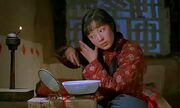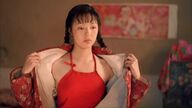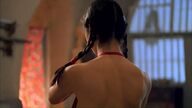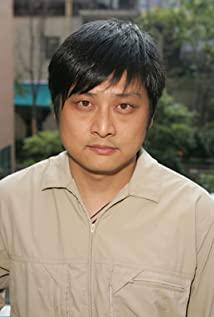If it is said that people take a bath now to be clean, then it can be said that people take a bath in the past as a way of life.
The movie Bathing takes us back to the leisure life of old Beijing men who gathered in the bathhouse to chat, drink tea, and fight crickets in the 1990s, and also tells the subtle changes in the relationship between three men in a family. Obviously, when Daming returned from Shenzhen, he was not used to, or even hated, Beijingers taking baths. When he learned that his father was in good health, he planned to return to Shenzhen immediately, but unexpectedly, his younger brother was lost and his father fell ill, so Daming stayed temporarily. It took time to communicate with my father and Erming. In getting along day and night, he understood his father's feelings towards the bathhouse and the neighbours' feelings towards the bathhouse.
"Clear water pool" is a kind of sustenance, a place to rest and comfort when the body is tired, a place to chat and talk when you are bored and lonely, and even a refuge for couples after a quarrel. That's what he meant, that the father enjoyed the pleasure of serving them.
Although the bathhouse's business is dwindling, it still makes sense for some regular customers.
Daming gradually understood his father, never wanting to communicate to rubbing his father's back, the relationship between father and son is heating up day by day, but unfortunately, the son wants to support but the relative is not there. Lao Liu went silently, and the bathhouse was going to be demolished, which also means that some things were lost with the inevitable development of the times, and the bathhouse culture is now gone.
However, director Zhang Yang is obviously not satisfied with this, and two short stories about bathing are still interspersed in the film. According to my understanding, one is about survival and the other is about belief. People in arid lands are extremely short of water. In order to give their daughters a bath, they exchanged a small amount of food. There is a holy lake in the plateau land. They bathe to wash their souls and their beliefs in their hearts.
After many years, Zhang Yang finally photographed the "pilgrimage road" in his heart - Gang Rinpoche.
At the end of the film, Chu Erming sings aloud, singing about the bygone era, and some of the things he represents are destined to be swallowed up with the development of the new era.
It is worth mentioning that the actors in the film are all drama actors and old drama actors. It is the delicate and unique performance of the actors, which vividly shows the characters and simple feelings of Beijingers. Pu Cunxin's handling of the changes in his father's emotional line was silent, and Jiang Wu's performance was the cutest mentally retarded I've ever seen.
The director did not use too many bells and whistles to bring the audience closer to the world of the bathhouse with a zen-like lens. The name "Qingshui Pond", the "Shang Shan Ruo Shui" on the plaque, and when my father chatted with his neighbors in the pond, the trays in the water, a pot of wine, and a plate of peanuts, created a kind of meandering water flow, and all the talents were completed. artistic conception.
The director's skill is extraordinary.
View more about Shower reviews










